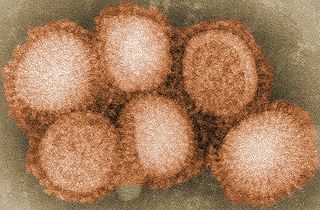The deadly animal disease, avian influenza, has been reportedly discovered in some parts of Kebbi State.
The state Director, Veterinary Services, Ministry of Animal Husbandry, Dr Alheri Ibrahim-Sanchi, says the state government has stepped up efforts to mitigate its spread.
He made the disclosure on Saturday while addressing journalists shortly after fumigating a farm infected with the disease located at Amanawa village, Kalgo, outskirts of Birnin Kebbi.
He said the disease had killed 14 peacocks in the affected facility so far.
The fumigation was carried out by a team of professionals under “One Health” comprising experts from ministries of Animal Husbandry, Health, Environment, and Information, as well as Principal Partners.
Ibrahim-Sanchi said the essence of the exercise was to curtail the spread.
He explained that some peacocks were reported to have been ill, and the pattern of mortality became worrisome, “so we sent a team of veterinary doctors for preliminary investigation.
“Upon investigation, we found it necessary to take samples, and those samples were sent to the Veterinary Diagnostic Reference Laboratory in Jos.
“When those samples were analysed, unfortunately for us, they returned positive for ‘Highly Pathogenic Avian Influenza (H5N1)’, so, this is what necessitated this exercise, to first of all come to the scene where these birds were resident and do the needful.”
The director said the main task was to ensure that the incident did not go beyond the affected facility, assuring residents that the team would go ahead and take active surveillance, “which is a pattern of seeking for other likely cases that may be occuring in our state.”
He said that considering the fact that “highly pathogenic avian influenza is zoonotic infection that has the tendency to spread to humans”, the team had also undertaken the veterinary component of it, while colleagues in human health would identify individuals in contact with the animals for necessary action.
Ibrahim-Sanchi appealed to poultry owners to remain calm but be vigilant and intensify bio-security, adding that “it is a disease that potent high economic loss for poultry owners.”
He advised poultry farmers to share information with their colleagues and minimise the number of persons who visit the poultry.
The director also enjoined them to restrict the movement of birds and avoid sharing farm implements to curb the spread of the disease.
Ibrahim-Sanchi added that the ministry, in collaboration with sister ministries and agencies like the Ministry of Health, Environment and Information, and principal partners, was making efforts to sensitise the public to the disease.
Also, in an interview, the Director of Public Health, Kebbi Ministry of Health, Abubakar Bagudu-Muhammad, confirmed that the disease had the potency to affect humans, adding that “it is also pathogenic, meaning it can be transmitted from one person to another.”
He, however, said they were working as a team, involving animals, humans, the environment, information, and other stakeholders to coordinate emergency health activities at the Public Health Emergency Operation Centre to curtail any outbreak.
Bagudu-Muhammad charged veterinary zonal officers, local government disease surveillance and notification under health, zonal officers of the Ministry of Environment, and focal persons at the ward and community levels to be vigilant and put more attention on the border axis.



